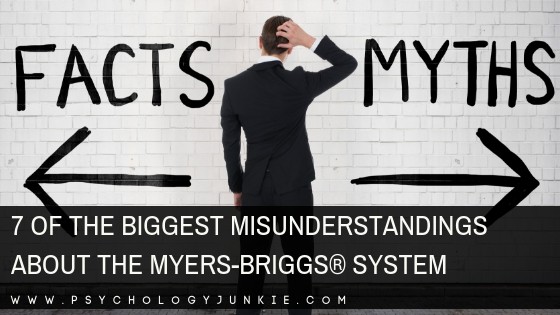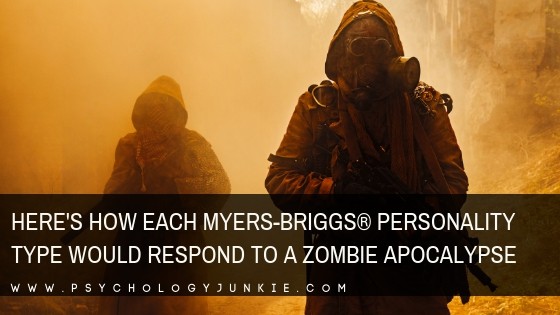The ENTP Dark Side
Do ENTPs have a dark side? These innovative, enthusiastic individuals are one of 16 Myers-Briggs® personality types. They are known for their imagination, quick wit, and love of logic. But what happens when these personality types aren’t at their best? What gifts can ENTPs turn into weapons or roadblocks when they aren’t being careful?
That’s what we’re going to explore in today’s article!

First off, let’s cover the basics:
Not sure what your personality type is? Take our new personality questionnaire here. Or you can take the official MBTI® here.
What is an ENTP?
ENTP stands for Extrovert, iNtuitive, Thinking, and Perceiving.
As extroverts, ENTPs are energized by the world outside themselves. This can mean interactions with people, efforts put towards projects, or simply being engaged with nature.
As intuitives, ENTPs are more perceptive to abstract or conceptual ideas and possibilities than they are to realistic details. For example, they might walk through a forest and be more focused on the symbolism of their surroundings than what they can see with their eyes.
As thinkers, ENTPs rely heavily on logic and detached analysis as a way to make decisions. This allows them to be highly efficient in problem-solving and also able to generate creative solutions from an analytical perspective.
Finally, as perceivers, ENTPs are more flexible and spontaneous than Judging personality types. They thrive in an environment of change, often finding that structure and routines can stifle them.
Now let’s get down to what you really came to this article for.
The Dark Side of the ENTP Personality Type
Everyone has a dark side. We all have ways we can “level up” and be our best, but we also have weaknesses that can trip us up and leave us wondering how in the world we got ourselves into this mess.
The dark side of the ENTP personality type can be triggered due to various events:
1) Stress: ENTPs can become overly analytical, highly scattered and easily frustrated when under stress. They can also experience grip stress, which makes them act out in uncharacteristic ways (we’ll dive more into this later in this post).
2) Immaturity: Whether an ENTP is simply young or hasn’t worked on themselves, immaturity can cause them to be arrogant and insensitive.
3) One-Sidedness: Some ENTPs only work on developing one or two sides of themselves while ignoring other aspects of who they are. This can result in distortions of their personality type.
4) Looping: Another aspect of one-sidedness, is looping. ENTPs can experience a Ne-Fe loop when they only develop the extroverted parts of their personality, while stifling the introverted aspects of themselves.
Now let’s dive into one of the most common causes of unhealthy behavior in the ENTP: Stress
ENTPs and Stress
When stressed, ENTPs hedge all their bets on the intuitive and thinking sides of their personality type. Typically they will behave more true-to-type and exaggerated in their preferences. This can show up in the following ways:
Scattered Thinking: ENTPs may try to use Extraverted Intuition (Ne) to solve all their problems. This means brainstorming, coming up with new ideas, and chasing possibilities. However, when stressed, this possibility-seeking nature can be extreme and cause them to run in multiple directions without achieving anything that fixes the core problem.
Insensitivity: ENTPs may double-down on their detached, logical thinking side. When this happens, they will appear more blunt, insensitive, and cold to the people in their surroundings.
Unproductive Activity: ENTPs can get so caught up in hypothesizing possibilities and analyzing these possibilities to the point where they are unable to make a decision and move forward. This can cause them to spin their wheels in an effort to find the perfect solution, but at the expense of actually making progress on their goals.
ENTP Grip Stress:
When ENTPs have exhausted their natural coping mechanisms, they may fall into the “grip” of their inferior function. This sounds complicated, but essentially this means that, rather than acting like a normal ENTP, the ENTP starts behaving more like an unhealthy ISFJ. They become hyper-fixated on details, worried about what people think of them, and obsessed with minor problems. Every detail inside their body and every detail in their surroundings can feel overwhelming. As a result, they may throw themselves into busywork trying to perfect a certain part of their home or hunt down the cause of a physical ailment they never noticed before.
This grip usually shows up during cases of extreme or chronic stress and people around an ENTP in this phase should try their best to be as sensitive and patient as possible, while also maintaining healthy boundaries.
The Immature ENTP
ENTPs who are young or who haven’t worked on developing and maturing in life can often be extremely arrogant, dismissive, and scattered. In their compulsion to explore new ideas, they often leave projects half-finished. Responsibilities may fall by the wayside as they chase a new dream, a new love interest, or a new adventure.
Immature ENTPs may debate just for the sake of it and will rarely take the time to listen or consider other people’s points of view. While the other person is speaking, they will often hypothesize their own retorts based on the limited data they’ve actually paid attention to. These ENTPs may think they’ve caught their opponent in a “gotcha” moment and then shoot to the finish line without truly understanding or actively listening to what the other person is saying.
Immature ENTPs are impulsive and risk-taking. While their penchant for risk isn’t always bad thing (without any risk many of us never advance) when this risk-taking is done without considering the consequences it can be damaging. For instance, an ENTP might take on a new business idea without preparing a realistic budget or game plan, leading to complications and financial stress down the line.
Manipulative behavior is another sign of an immature ENTP. They may use their charisma and creativity to manipulate and control situations or people, often with the intention of getting what they want. ENTPs are typically skilled at reading people, and they can use this skill to get what they desire, by charming or deceiving others.
The Ne-Fe Loop
ENTPs who are hyper-fixated on the extroverted side of their personality type may get stuck in a “Ne-Fe loop.” This means they become so fixated on hypothetical possibilities or analyzing the feelings of others that they can’t focus on what actually makes sense for them. But before we dive into the details, what do “Ne” and “Fe” even mean?
Ne is the short code for Extraverted Intuition
Extraverted Intuition is the ENTP’s dominant cognitive function. To put it simply, this is the mental hardware that ENTPs are most comfortable using in their daily lives. They rely on the ability to think of many possibilities, connect them together, and see relationships that might not be immediately obvious.
Fe is the short code for Extraverted Feeling
Extraverted Feeling is the ENTP’s tertiary cognitive function. This piece of mental hardware focuses on feelings, emotions, and values. This function is often less developed in ENTPs than their dominant or auxiliary functions (Intuition and Thinking), but it can still be influential in their thought processes.
When an ENTP becomes stuck in a Ne-Fe loop, they focus too much on the possibilities that exist outside of themselves, instead of looking inward for inner wisdom. This can manifest in a range of negative behaviors, such as jumping from one project to the next without finishing any of them, or trying too hard to impress or please others instead of doing what’s logical.
Breaking out of the loop requires an ENTP to tune into their inner world and slow things down. When ENTPs get into the introverted thinking side of their personality type (Ti), it allows them to start reasoning about what makes sense for their situation and make more conscious, rational decisions.
Tired of looking at what’s wrong? Now let’s move on to how we fix things!
ENTPs have the potential to be visionary leaders, conscientious innovators, and dreamers who improve the world. But that means taking strides towards personal growth, maturity, and psychological balance.
How can we do that?
Let’s start by addressing the stress issue:
Finding Healthy Ways to Cope with Stress:
Stress hits everyone, no matter their type. But you can confront it in healthy ways rather than wearing yourself out or falling into the grip of that pesky inferior function.
Stress management techniques like exercise, journaling, yoga, and meditation are all great ways to manage the stress that come with the territory of being an ENTP. Getting some time alone to focus on deep breathing and clearing your head is also essential.
As an MBTI® practitioner, I’ve also heard many ENTPs talk about the benefits of tuning into their bodies. Many ENTPs are so stuck in their heads, coming up with ideas, that they forget to take care of their physical selves. If you notice yourself getting stressed, you may simply need to focus on your breathing, get a glass of water, eat a meal, or take a nap. Do a check-up of your physical sensations and notice if there is anything that needs tending to. But don’t get paranoid! Many ENTPs start to feel a little anxious when they tune into their physical selves, noticing emotions and bodily sensations that they haven’t felt before.
Moving Towards Maturity:
Once you have learned to better manage stress, it’s time to work on your maturity. As an ENTP, this means getting in touch with who you are and exercising the various parts of your personality.
To exercise your intuitive side, make time to brainstorm, ideate, and play with ideas. Think of new ways you could accomplish existing goals, go to new locations and enjoy the unpredictability of your surroundings, or play with connections between different things in your environment. For example, how is a fork like an excel sheet? What are 10 ways you could change up your morning routine?
To work on your Thinking side, try to look at situations objectively. This means stepping outside the situation to notice patterns, facts, and evidence before making decisions or forming opinions. Make sure you are reasoning with data rather than just going with the flow of things. Analyze how things work, play strategy games, or categorize your priorities in your own mind in different ways. For example, if you primarily focus on gaming, friendships, and your family, what categories do these fall under and how can you make sure you’re prioritizing them in a balanced way? Is there a category that should be prioritized that isn’t being prioritized?
And let’s not forget your Feeling side. It is important to practice empathy, self-care, and expressing your emotions in healthy ways. Incorporating other people’s perspectives into making decisions can help make you a more effective leader, as well as a better listener. Start small by having honest conversations with friends or family, practice active listening, or find a few random acts of kindness you can do each day. You’ll feel happier as a result!
Finally, let’s explore how to develop the sensing side of your personality type. This can be the most challenging side to develop, so be patient with yourself and try to work on it during stress-free moments. You can tap into your sensing side by focusing on the details in your environment, noticing physical changes in yourself, and being present in the moment. You can also try creating some simple routines or traditions that stabilize you and give your life a little bit more certainty and structure.
I hope this has been helpful!
As always, I’d love to hear your thoughts and perspectives in the comments. Keep in mind, I run this blog while homeschooling my kids and being a wife, so I don’t always get back to comments right away. That said, I read every comment and others read them as well! You can motivate and encourage other ENTPs by leaving a thought or two – just try to be kind.
Find out more about your personality type in our eBooks, Discovering You: Unlocking the Power of Personality Type, The INFJ – Understanding the Mystic, The INTJ – Understanding the Strategist, and The INFP – Understanding the Dreamer. You can also connect with me via Facebook, Instagram, or Twitter!
Other Articles You Might Enjoy:
24 Signs That You’re an ENTP, the Trailblazer Personality Type








